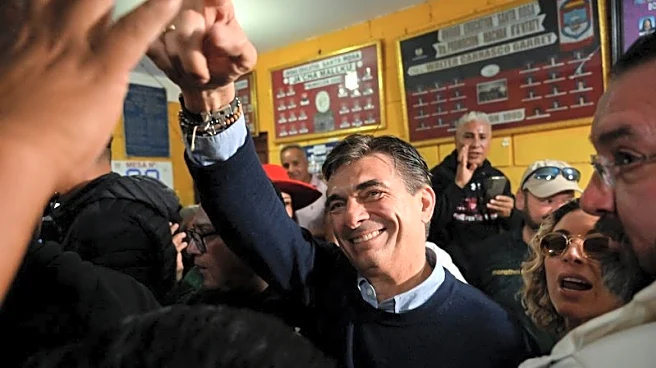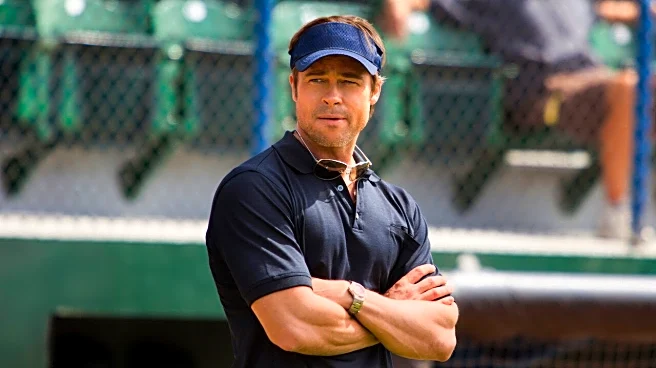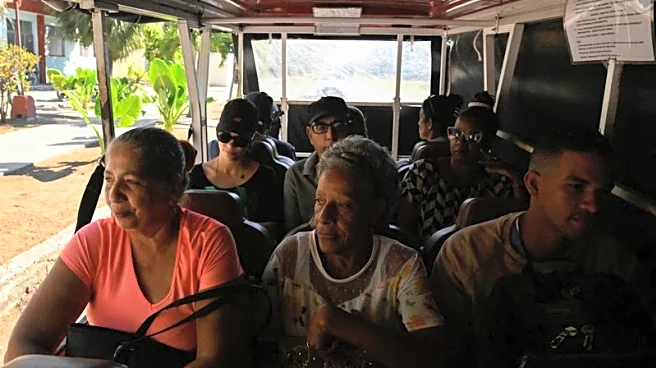By Monica Machicao and Lucinda Elliott
LA PAZ (Reuters) -Bolivia's president-elect Rodrigo Paz, who claimed victory in Sunday's presidential runoff, is the son of a former president of the Andean nation
who was born in exile from its military dictatorship and schooled in the U.S.
Paz, 58, of the Christian Democratic Party, defeated conservative rival Jorge "Tuto" Quiroga in Sunday's presidential runoff to end nearly two decades of leftist rule.
Paz's moderate platform resonated with voters disillusioned by the ruling Movement to Socialism (MAS) party, founded by former President Evo Morales, amid a deepening economic crisis.
"This is a new stage for Bolivian democracy in the 21st century," Paz said in an interview with Reuters two days before the election at his family's ranch in the southern gas-producing region of Tarija.
Paz, who takes office on November 8, reiterated plans to open up parts of the economy to private investment and close loss-making state firms, while maintaining cash transfers to vulnerable groups.
"The state is an obstacle," he said. "There are freeloaders earning salaries (from the state) without doing anything."
Paz was born in Santiago de Compostela, Spain during his family's exile under Bolivia's military dictatorship. Throughout his childhood he studied at various Jesuit schools, later graduating from the American University in Washington. His father is former President Jaime Paz Zamora, who ruled Bolivia from 1989 to 1993.
His father was the sole survivor of a plane crash in Bolivia — an incident later revealed to be a targeted attack ahead of the country's 1980 coup. His mother also survived a mysterious car crash while in exile, episodes that he said marked his formative years and political ambition.
When his family eventually returned to Bolivia in the 1980s, Paz began his political career in Tarija, gradually advancing from city councilor to senator. He has aligned himself with parties from across the political spectrum over the years, ranging from his father's Revolutionary Left Movement to right-leaning alliances.
During this election, Paz positioned himself as a centrist candidate, pledging to maintain social programs for the poor while promoting private-sector-led growth. His economic plan includes tax incentives for small businesses and the self-employed, and greater fiscal autonomy for regional governments.
"Ideologies don't put food on the table," he said.
Like his opponent Quiroga, he has said he wants to improve diplomatic ties with Western countries, including the U.S., after years where Bolivia had aligned itself with Russia and China.
Paz expressed concern over the country's rising external debt obligations, which he said required urgent renegotiation. He confirmed meeting with representatives from the Inter-American Development Bank, World Bank, and International Monetary Fund in Washington last month.
"Debts are a deal that we are renegotiating," he said.
PROMISES TO KEEP BENEFITS
To win over left-leaning voters who abandoned the socialists but were wary of cost-cutting pledged by Quiroga, Paz had adopted a more populist tone than in the first round.
"From day one, we will have fuel, we will have tax incentives," Paz said in a televised debate on October 12. "All social benefits will be respected."
Opponents said those promises were unrealistic, and economists warned that whoever won the vote will have their work cut out for them.
"The fiscal hole is immense," said Jonathan Fortun at the Institute of International Finance. "The question is not whether adjustment comes, but how fast and how disruptive it will be."
Among the incoming government's immediate challenges is a fragmented legislature to push through necessary reforms. No single party holds a majority in either house, meaning Paz will need to forge alliances to govern effectively. Paz's Christian Democratic Party won 49 of 130 seats in the lower house and 16 of 36 in the Senate in August, making them the largest minority group.
(Reporting by Lucinda Elliott in Montevideo and Monica Machicao in La Paz. Additional reporting by Daniel Ramos in La Paz and Brendan O'Boyle in Mexico City. Editing by Christian Plumb, Rosalba O'Brien and Lincoln Feast.)











